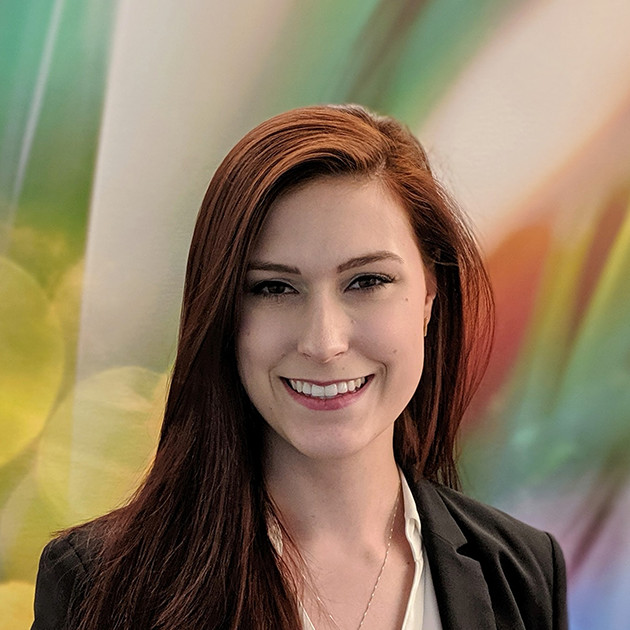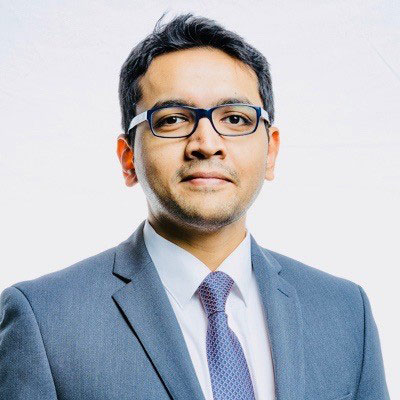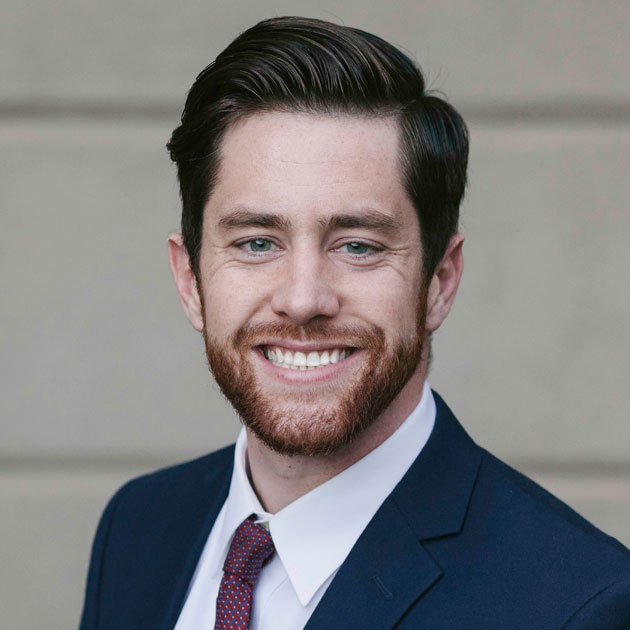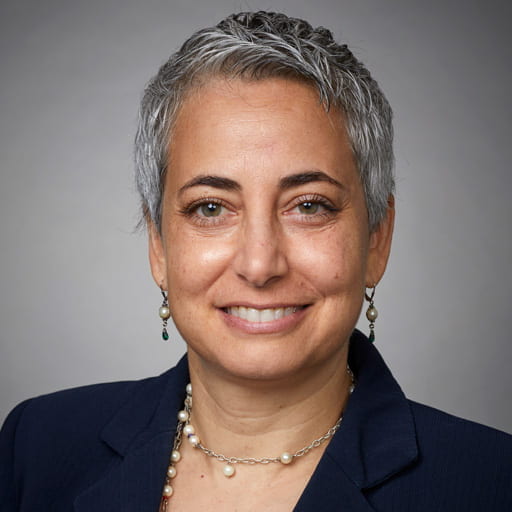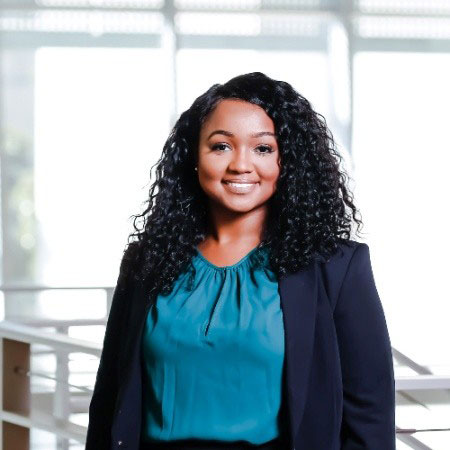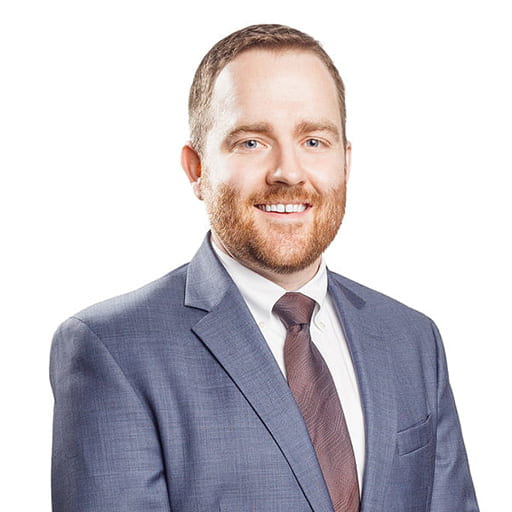
The inaugural episode of Yet Another MBA G.O.A.T. (the acronym stands for Greatest of All Time) podcast features Ben Wilson, MBA’11, vice president at Bulkley Capital, a boutique financial advisory and investment-banking firm. Ben joins host Dr. Monica Powell, senior associate dean and dean of graduate programs at the UT Dallas Naveen Jindal School of Management, for a discussion about how his degree helped him make his unique career transition. He went from an operations manager and education director at a philharmonic orchestra to a financial leader who helps company owners and management teams develop acquisition strategies and access capital resources.
Transcript
Introductory music plays up through Monica’s introduction.
[Jimmie] This is yet another MBA goat, a podcast featuring conversations with the greatest of all time MBA alumni from the Naveen Jindal School of Management at the University of Texas at Dallas. We’re here to celebrate the outcomes of graduate management education, and to identify remarkable examples of how the MBA program here at the Jindal School has transformed the lives of our alumni. Now here’s Dr. Monica Powell; Senior Associate Dean and Graduate Dean at the Jindal School. Take it away, Monica.
[Monica] Well hello there. We are so excited to have Ben Wilson with us. He is an individual that brings a really cool transformative experience from the MBA to where he is today. So we’re going to go from musician, to mergers and acquisitions gurus. So Ben welcome to the program.
[Ben] I’m happy to be here. Thanks. Thanks for having me.
[Monica] We are thrilled you know I was reflecting back on what it was like when you came into the program. And I somehow, remember that you were involved in orchestra, or…
[Ben] Yeah.
[Monica] How does a guy who was involved in orchestra, go all the way to become vice president at Buckley Capital?
[Ben] Right! So yeah that’s well, a large part of it is, is coming here coming to UT Dallas, so I you’re right, so, as an undergraduate, I actually studied music, and I specifically was a saxophone player. But I majored in music business, and as part of that took a handful of courses from the business school where I went to college, and I really enjoyed that, but never had an opportunity to really apply that in my career. So when I graduated from West Texas A&M with a Music degree, I then went on to work for a couple of different symphony orchestras as you mentioned, so spent a year in Phoenix, Arizona, right out of school and then wanted to come back to Texas and took a job with the Abilene Philharmonic Orchestra in Abilene, Texas, where I was the operations manager and director of education there.
[Monica] So, how do you make the transition? From being an operations guy to say man I’m going to give all this up and I’m going to go, I’m going to go to the big city and I’m going to get an MBA and I’m going to transform my career?
[Ben] Sure, yeah well that was a, you know, that was a tough decision. It was you know at the time, I was like I said working for a couple of different symphony orchestras business or nonprofit organizations and I really liked what I did, but I looked at, looked around me looked at the organization, realized that there were only there’s usually only one orchestra in a town, and I knew that that my boss the executive director of Abilene Philharmonic wasn’t moving at any time in the future. And it kind of made me take a step back, look at that and say, is this the life that I want you know for the rest of my career? Do I want to work for an organization that where moving up in my career usually means moving around geographically? And it was at a time in my life where I was kind of thinking about getting married, thinking about starting a family, and realizing that at some point I probably settle down. And so that was, that was kind of a logical thing at the time for me was to say is this what I want? And you know I came to the conclusion that what I wanted for the rest of my life was go back to business school and then start a different career.
[Monica] Wow, I mean that must have been a kind of a jolt to the psyche to think that I’m going to leave behind you know, music and all that I loved and what I studied and I’m going to embark out into, you know the unknown land of an MBA. And you went to finance of all things.
[Ben] Yeah.
[Monica] So you jump from music to finance, I mean how does somebody make that transition and fall in love with finance? I’m sure you don’t sit around and bebop, you know, financial models and all that kind of stuff like you might do saxophone so well.
[Ben] Laughing… You know you might be surprised at the, at the connections between, you know, building financial models for as one example and, and the creative processes involved in music. There’s a great deal of creativity, I find a great deal of creativity, involved in what I do now, which, which is fun and engaging for me. You know, I would go back to when I was growing up, my dad had his own kind of tax accounting practice, and I used to spend the summers up there helping him, you, know with data entry and kind of, you know, pretty rudimentary, tasks but got a taste for it. And really I would say I remember having a conversation with Lisa, Lisa Shatz. When I was going through the admissions process here at UT Dallas, where she asked me, you know, what did I see myself doing 10 years out of school? And what I kept coming back to was I wanted to do, do something similar to what my dad had done, which was to help small, mid-sized businesses in all different fields, help them to accomplish the goals that they had. And fortunately, that’s what I have, you know, the ability to do now, at the firm where I am at, Bulkley Capital.
[Monica] Yeah, you know, Lisa Shatz is amazing you know she was the director of the full time MBA program while you were a student, and has since been promoted to Assistant Dean and Director of MBA programs, that was back in 2014. It’s interesting because you really have climbed the ladder at Bulkley. I mean it’s really impressive I mean you started as an intern.
[Ben] That’s right.
[Monica] During the MBA program and then you went from an intern to an analyst to an associate to a senior associate, and now a VP at Bulkley. So that’s, I mean that’s an amazing career progression in a relatively short span of time. I mean you graduated in 2011, that’s less than 10 years.
[Ben] Yeah, you know, I’ve been fortunate at that firm where I am to have found a very good fit, really enjoy the people that I work with. Enjoy our clients
[Monica] Is it a small firm? How big is it?
[Ben] It is a small firm, we have five, five professionals in our firm. So it’s a, it’s quite a small firm, and we work with clients who are generally you know in terms of employees anywhere from about 50 to employ 50 employees to a couple hundred employees. In terms of revenue sizes, anywhere from generally around 20 million in revenues, up to four or 500 million of revenues. So, we are in, we’re addressing a market that we call the lower end of the middle market, which I think is probably a unique perspective, compared to most people who come through UT Dallas and then probably most of the listeners of this podcast is that we get to work with the small and mid-sized businesses that are a huge part of our economy that a lot of people don’t realize, you know, necessarily, what’s, what’s going on with a lot of these small businesses.
[Monica] You guys are really niche, I mean you, you focused in on your piece of the market and you guys have really grown that.
[Ben] That’s right and I would say specifically our niche is family-owned and founder- owned businesses which is even, you know, as you say a niche, within that within that end of the market. So, we have the pleasure to work with a lot of great companies, a lot of great management teams who, who are in all different industries. So, our firm, what we do on a daily basis is we’re, we’re a boutique investment bank of mergers and acquisitions advisor so we are working with clients to raise capital, and to affect transactions that really that have to do with the balance sheet so most of the time that involves an acquisition of some sort, so we will advise our clients on the acquisition process, they’re trying to make an acquisition, and they may be doing that for any number of reasons. We also help business owners and management teams when it’s time to sell a business or if they’ve been approached by someone who wants to buy that business so we … Those are the types of transactions that we work with, it’s, it’s, it’s a fascinating world that you know I don’t think I’ll ever get tired of it.
[Monica] It sounds like it’s a lot of fun.
[Ben] Yeah, it’s a lot of fun you know.
[Monica] When you’re sitting in your desk there work every day and you reflect back on the MBA program. Are there any specific kinds of memories that just sort of creep into your reality? Like oh my gosh, I really remember that from Robert Kieschnick’s class or wow I really didn’t expect I would ever use this and I’m using this today.
[Ben] Yeah.
[Monica] Does that happen?
[Ben] Absolutely. So I would say that two professors in particular – I think their classes were pretty influential for me and still have a large amount of influence on my daily life and what we do for our clients. And Robert Kieschnick would be one of them that you mentioned. So that was really my first taste of finance as part of the MBA journey, but also David Springate who teach, who, you know, when I was there taught several classes that I took one of which was a private equity finance class, and that class in particular but some of his others as well were very influential for me.
[Monica] When, when do you think you started to really believe that getting the MBA here at UT Dallas was really going to transform your life? I mean, you’re kind of betting on it you’re, you’re leaving behind what you know, you’re leaving behind what you love and you’re embarking on, you know, the possibilities the hope of really sending your life on a completely different trajectory. So, at what point did you know that that was going to happen for you?
[Ben] Well you know I still don’t know if I know the full effects of it. It’s it seems like as I think back, it’s kind of hard to imagine, I don’t think I would have been able to forecast what my post MBA life and career has been. But it’s been great and I wouldn’t change a thing. I would say you know I that realization came to me, probably during the internship process. When it’s kind of, you know, interviewing it at different places wound up at Bulkley Capital, and what the MBA provided for me as someone who was changing careers, was that vote of confidence, or that that kind of indication of credibility in the workplace that I’m not sure I would have been able to bring if I hadn’t made that choice.
[Monica] You probably don’t know this from the folks that are down in the MBA programs office but folks that come to us with musical backgrounds tend to be really, really successful.
[Ben] Is that right?
[Monica] There’s just something about the analytical mindset of a musician, and how that applies especially in the area of finance, so it’s really not surprising that you would say that finance is very creativity oriented and opportunity to really explore different solutions, just like music is. So I’m glad that that’s that finance is music to your ears in that sense.
[Ben] I think our firm, broadly speaking, is in the finance industry, but I think what we do for our clients is so much, so much broader based, and it, there’s a lot of creativity involved and there’s a lot of kind of big-picture thinking involved, and I find that it incorporates a lot of the skills that I picked up during the MBA process. So not just the financial ones but having an understanding of marketing principles, having an understanding of general management and strategy, and then I think in particular having that kind of organizational behavior training. It has been largely maybe as influential on my career as, as any other subject and interestingly, so I don’t this I would have said that, you know, while I was here but looking back on and I’m certainly glad for.
Music fades in.
[Monica] Well now that we have that, you know, on audiotape we’re going to play that over and over, for this prospect.
[Jimmie] This episode is brought to you by the UT Dallas MBA program top ranked nationally and in Texas, the UT Dallas MBA combines a robust core with 13 concentrations. You have an option to add a second master’s degree, and your choices for that include five STEM designated programs. The MBA program has full time, part time online and other formats that give you flexibility to fit your MBA education into your busy schedule. The skills and training you will receive are what top employers are looking for. For more information, visit us online at Jindal.UTDallas.edu/MBA.
[Monica] But you know, um, this is a funny world that we live in relative to the MBA itself .
[Ben] Right.
[Monica] If you look back to the 1990s that was kind of the heyday of the Golden MBA.
[Ben] Sure.
[Monica] And you know, now we live in a, in a timeframe where people that are really successful in their careers are remembering the financial debacle of 2008 and 2009 and who was to blame but those people who had the MBAs that were there on Wall Street. But you know now a lot of folks really question whether or not the MBA is a legitimate choice in terms of really having an impact on their career? So if there are folks out there that are thinking about an MBA but think that it’s just not so sexy anymore or it’s not the degree that’s going to advance your career. What would you say to somebody? Especially given that you, you know you didn’t come from an undergraduate degree in business you came from an undergraduate degree in music.
[Ben] Right.
[Monica] And so, you know, for you, you made a, an enormous transition. But how do we sell people today on the notion that the MBA is still relevant? It still makes sense, it’s still a good reason to step out of the workforce and really advance your skill set?
[Ben] Maybe I’ll take that question two different two different ways, one kind of generally speaking, and where I think the MBA degree with the place that that holds in the in the current market is. And then, also, specifically to me, because I think those two different two answers are slightly different. Generally speaking, I think, when you go to business school and when you go through an MBA program, it’s probably particularly important for those who participate in, in a full-time MBA program or in some in person type program so maybe that’s part time, maybe that’s full time or an executive MBA program. I think the opportunity to network with people from different backgrounds and who will eventually go into different areas is something that you can’t get anywhere else. Most often, you know, our interactions with others and during our career or with people who are in a similar field to us or who have similar backgrounds.
[Monica] It’s a homogeneous experience.
[Ben] Exactly. There’s, there’s nothing like the, the experience of an MBA program to awaken you to the perspectives of people who are coming from different countries, coming from different cultures, coming from different backgrounds, of different age groups. And I think that’s an important one as well. And people who have different sets of interests, different skill sets, people you can learn from, people you can teach and people who will go any number of different directions in their career and an alumni group and really a group of friends and contacts that you can draw on for the rest of your career. Specifically for me though, I think and this would, you know, as a career changer, the MBA was indispensable. I had actually had a conversation that’s relevant to this, just the other day with a gentleman who works for a private equity group. We were talking, a colleague of mine whose, whose daughter is considering getting an MBA at some point in her career was asking this gentleman if he thought an MBA was worth it. And he had, you know, some good things to say and some bad things to say. But I think his you, know he, he looks at the MBA as giving someone a credibility that really that only the MBA can provide. In his world he does a lot of fundraising for private equity, and the MBA is certainly a checkbox that his investors need to see sometimes in order to, you know, it gets them it fast forwards the conversation.
[Monica] It opens the door.
[Ben] The door. Right. It’s a calling card that that opens the door for him. And I would say for me that it’s, it’s similar in some ways, as a career changer. I don’t think there’s any other way I could have gotten the credibility that I that I did get outside of going to business school. And there are some things kind of on the fringes of my time here UTD participating in case competitions, trying to do as much project-oriented work as possible. I actually sat for the CFA exam, those types of things I think add to the credibility, but, but the MBA is certainly the cornerstone of them.
[Monica] You know we tell students all the time that if they if they come and all they do is engage in the classroom, then they’re not getting everything that they paid for. It’s what happens outside of the classroom that often enhances that knowledge – gives you a platform to practice your confidence building skill set. So, you said a case competition and some other engagements, can you talk a little bit about what else you did other than go to class? And study like a beast.
[Ben] Sure. Well I would say, I would say that the case competitions are probably some of the most formative things that I that I did here in my during my time at UT Dallas. Another one would be, the business idea competition. So we participated in that and we, we got second place in that, which was fantastic. Those experiences are directly analogous to what I do today, working with a client on what effectively is a case. So are in our world, the mergers and acquisitions, the transaction is, is like a case. And so, we deal with imperfect amounts of information just like you do in a case competition, you work on a team, just like you do in a case competition and you have kind of a defined workflow or work process and, and certainly a very tangible work product or deliverable that’s that comes out of that so the case competitions were invaluable and you know I’m certainly glad to have had, you know, the encouragement to participate in those and also glad to have had those experiences with my classmates.
[Monica] You know it’s interesting that you make that analogy to what you do today but you’re having to make a case to that organization as to why they should hire your firm to do the merger or the acquisition, and you don’t always have all of the insider information and am able to give them exactly the right proposition so it really is all about selling in some way.
[Ben] Yeah that’s right there’s, there’s certainly a large selling component to my job. You’re right when you, when you come to business school and you are in a group of peers, there’s a surprising amount of sales training that happens during, you know, kind of off the books sales training in terms of, you know, hey, classmate. Can you help me work on this project right now?
[Monica] You know and you’re selling them on that idea so and then selling them on the exchange of expertise, you know, hey I’m gonna be really great in finance and I can help you but man, I just can’t do this marketing so it’s all about negotiation in school, and out of school.
[Monica] We always say to our MBAs, especially our full-time MBAs, that we’re going to take credit for their accomplishments for the rest of their lives. Because it’s a good selling feature in terms on encouraging people to get an MBA, but we also feel like we’re a party to this successful journey of the student. So when you think back on the MBA and you think back, not necessarily on the return on financial investment or the return on professional investment, in terms of the competency you get the ability to negotiate, the ability to sell all of those things. But when you look back on it, how did it change you personally and how would you be different today if you hadn’t made the choice to come to UT Dallas? And to have, I mean, we’re a small program. We’re not, you know this giant 500-person MBA program, we’re a small program, we bring in 50 students a year, So, so, how has it changed you personally in a way that you just wouldn’t have gotten? Now obviously you’ve made your dad very happy.
[Both] Laughing.
[Monica] But, but in terms of just a preparation or a change that you – wasn’t part of the deal- wasn’t part of what you were expecting?
[Ben] Yeah, I think it’s hard to know how much confidence you receive from participating in a program like the one at UT Dallas. I was part of the cohort program, and like I said interacting with those who come from different backgrounds and with different skill sets and being able to interact with them and being able to add to the conversation was something that, you know, I think, as I was entering the program I was a little bit nervous or concerned that I might not be able to do that – right I’m here I’m a music major. What do I know?
[Monica] Let me get my saxophone now, I can get us all to jive.
[Ben] Exactly. Yeah, so, so being able to, you know, being able to just jump into the fray and be a real part of it and I think I owe my classmates some, you know, a debt of gratitude for allowing me to do that but I certainly and allowing me to learn from them and allowing me to teach them, because I think there were a lot of contributions that I was able to make and that was that certainly helped build my confidence, moving into the rest of my career.
[Monica] So if I were to bring you an uncertain candidate, right now, right, and you had five minutes to say, you know, a couple of bullet points as to why they should think about UT Dallas, what would those short phrases be that you would say to that person?
[Ben] Well, I would say, you know that they should make sure that UT Dallas is the right fit for them. You mentioned earlier that it’s a small program and for me that was, that was exactly the right fit. And I think it’s the right fit for a lot of people. I think it’s tempting to go to a larger program, maybe, perhaps, in another area of the country. I think UT Dallas has a lot to offer, the Dallas area is fantastic UTD is the best school in Dallas I’m convinced of that fact, one of the best schools in the country really, and a program that’s growing, growing in reputation and I would wholeheartedly recommend this program to anyone who is unsure about it.
Music begins.
[Monica] Well, Ben, you are absolutely amazing. We’re so proud of you. We are grateful that you’ll take time to come and be a part of our podcast episode today and we salute all of your accomplishments, and we cannot wait to watch and see what happens in the next 10 to 15 years of your career so thanks for being with us this afternoon.
[Ben] Thanks again for having me.
[Monica] Thank you so much for listening to today’s podcast. I hope that you were inspired by the words you heard from one of our greatest of all time MBA goats. If you were inspired to think about getting an MBA degree. I hope that you’ll be in touch with us, give us a call, drop us an email. Hop on our website. Be in touch with us so that we can help you make a difference in your future. We look forward to hearing from you.
[Jimmie] Thanks for listening to this episode of yet another MBA G.O.A.T. podcast. Join us online at mbagoat.com to find episode notes, links and more. Be sure to subscribe to yet another MBA G.O.A.T. podcast on Apple Podcasts or your favorite podcasting app. If you like what you hear, please leave us a five-star review. That will help spread the word about the podcast and the Jindal School’s MBA programs. To learn more about the Jindal School’s MBA program, go to jindal.utdallas.edu/mba.
(Music continues)

